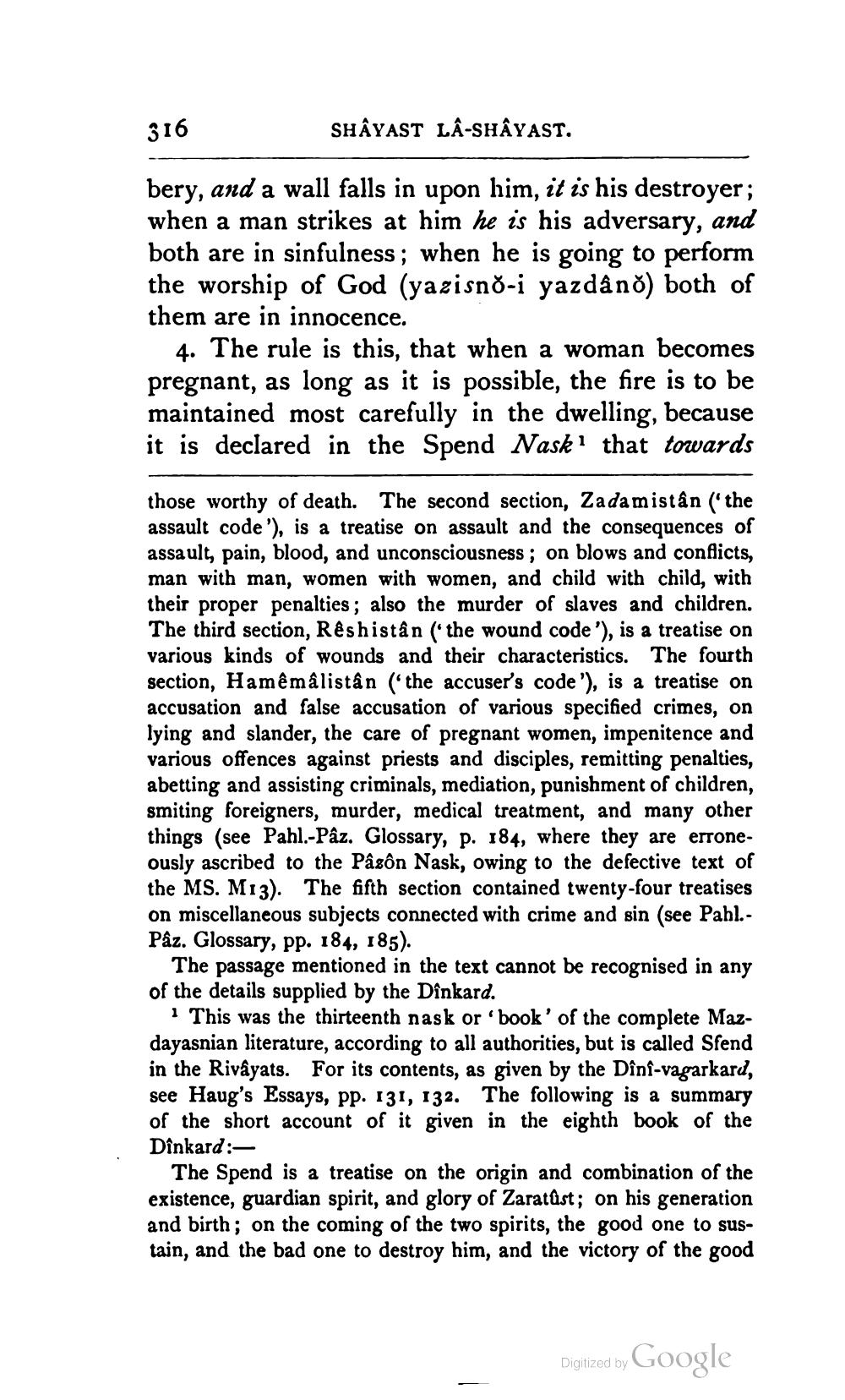________________
316
SHAYAST LÂ-SHAYAST.
bery, and a wall falls in upon him, it is his destroyer; when a man strikes at him he is his adversary, and both are in sinfulness; when he is going to perform the worship of God (yazisnð-i yazdano) both of them are in innocence.
4. The rule is this, that when a woman becomes pregnant, as long as it is possible, the fire is to be maintained most carefully in the dwelling, because it is declared in the Spend Naski that towards
those worthy of death. The second section, Zadamistân (the assault code'), is a treatise on assault and the consequences of assault, pain, blood, and unconsciousness; on blows and conflicts, man with man, women with women, and child with child, with their proper penalties; also the murder of slaves and children. The third section, Réshistân (the wound code'), is a treatise on various kinds of wounds and their characteristics. The fourth section, Hamêm âlistân (the accuser's code'), is a treatise on accusation and false accusation of various specified crimes, on lying and slander, the care of pregnant women, impenitence and various offences against priests and disciples, remitting penalties, abetting and assisting criminals, mediation, punishment of children, smiting foreigners, murder, medical treatment, and many other things (see Pahl.-Pâz. Glossary, p. 184, where they are erroneously ascribed to the Pâsôn Nask, owing to the defective text of the MS. M13). The fifth section contained twenty-four treatises on miscellaneous subjects connected with crime and sin (see Pahl.Paz. Glossary, pp. 184, 185).
The passage mentioned in the text cannot be recognised in any of the details supplied by the Dinkard.
This was the thirteenth nask or 'book' of the complete Mazdayasnian literature, according to all authorities, but is called Sfend in the Rivâyats. For its contents, as given by the Dînî-vagarkard, see Haug's Essays, pp. 131, 132. The following is a summary of the short account of it given in the eighth book of the Dînkard:
The Spend is a treatise on the origin and combination of the existence, guardian spirit, and glory of Zaratust; on his generation and birth; on the coming of the two spirits, the good one to sustain, and the bad one to destroy him, and the victory of the good
Digitized by Google




